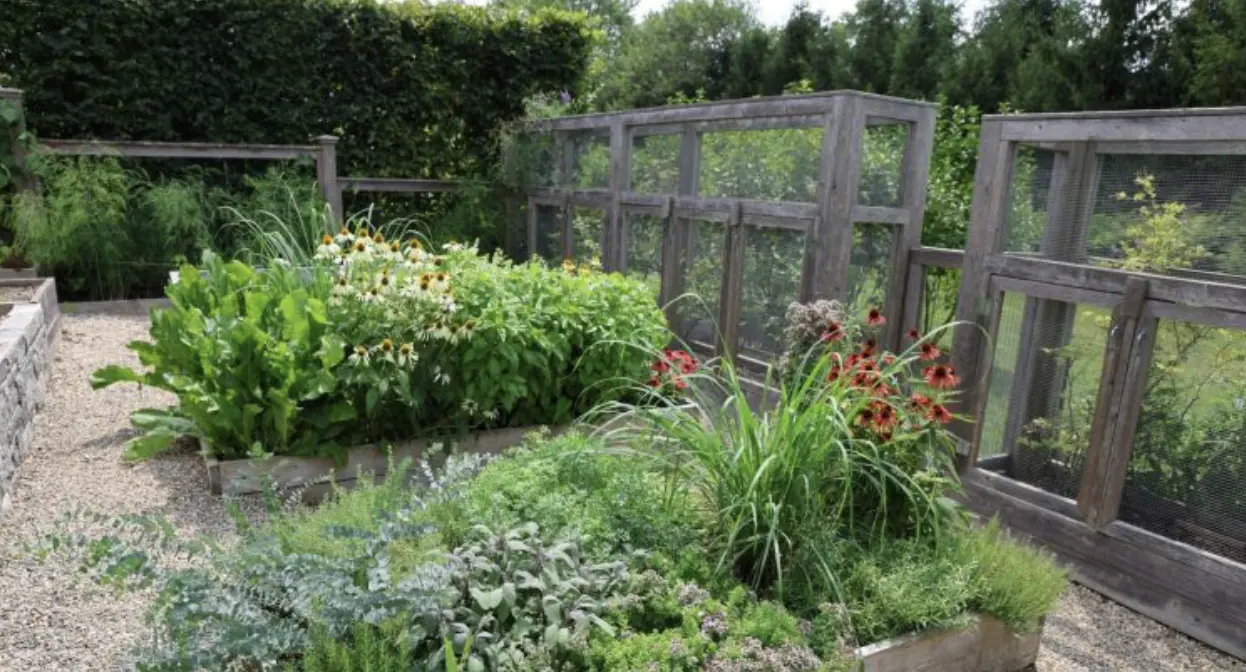
By Janet McMahon
Summer is just around the corner which means that many of us gardeners are tending to our gardens! Whether you have a small or large garden, are a novice or a master gardener, there is no greater joy than reaping the literal – and figurative – fruits of your labor. As you may have already known, growing your own edible garden is not only healthy for you and your wallet, but also for the planet. But did you know that you can maximize your environmental impact by gardening sustainably as opposed to relying on traditional gardening methods?
You don’t need to make drastic changes to your gardening routine to create a more sustainable garden. Sustainable gardening focuses on eco-friendly practices that conserve natural resources, improve soil health, and protect biodiversity. In short, it’s about working with nature, rather than against it. Even better, there’s no one-size-fits-all formula—you can blend traditional and organic approaches in a way that fits your space, time, and lifestyle. The greener your garden, the better it is for both the planet and your personal well-being.
One of the simplest and most impactful steps one can take toward “greening your garden” is discontinuing or reducing the use of chemical pesticides and herbicides. These toxic chemicals have the potential to not only damage wildlife habitats and ecosystems but have adverse effects on the humans, insects, and animals that come into contact with them. There are many natural DIY alternatives to pesticides and herbicides such as Neem oil, castile soap spray or chili pepper spray. (https://www.treehugger.com/natural-homemade-insecticides-save-your-garden-without-killing-earth-4858819) Better yet, consider planting native species in or around your vegetable garden. Plants like mountain mint attract native pollinators and beneficial insects, helping to naturally reduce the need for pesticides.
Backyard composting your food scraps and lawn debris is another powerful and surprisingly simple way to support sustainable gardening. (https://gltrust.org/event/composting-turning-scraps-into-soil-workshop/)
Compost, through the addition of organic matter, enriches the soil with essential nutrients like nitrogen, phosphorus, and potassium, as well as beneficial trace elements such as calcium, magnesium, iron, and zinc. Compost also helps retain moisture, reduces erosion, and supports beneficial soil organisms—cutting down on the need for synthetic pesticides and fertilizers while also increasing resiliency during dry spells. Not up for managing a compost pile at home? There are several curbside composting services that collect your food scraps and return rich, organic compost in return.
Water conservation is another key piece of the sustainable gardening puzzle. Traditional sprinklers and manual watering often waste large amounts of this precious natural resource. A better alternative? Drip irrigation systems, which deliver water directly to plant roots where it’s needed most. You can also collect rainwater in barrels and use it for watering—an easy way to cut down on water use. Pro tip: Water early in the morning or in the evening to minimize evaporation and ensure your plants get the full benefit.
Janet McMahon is the Communications Coordinator at Greenwich Land Trust. She has a husband, two children and a cat, and aims to spread awareness of all of the good things the Land Trust is doing for the community.



